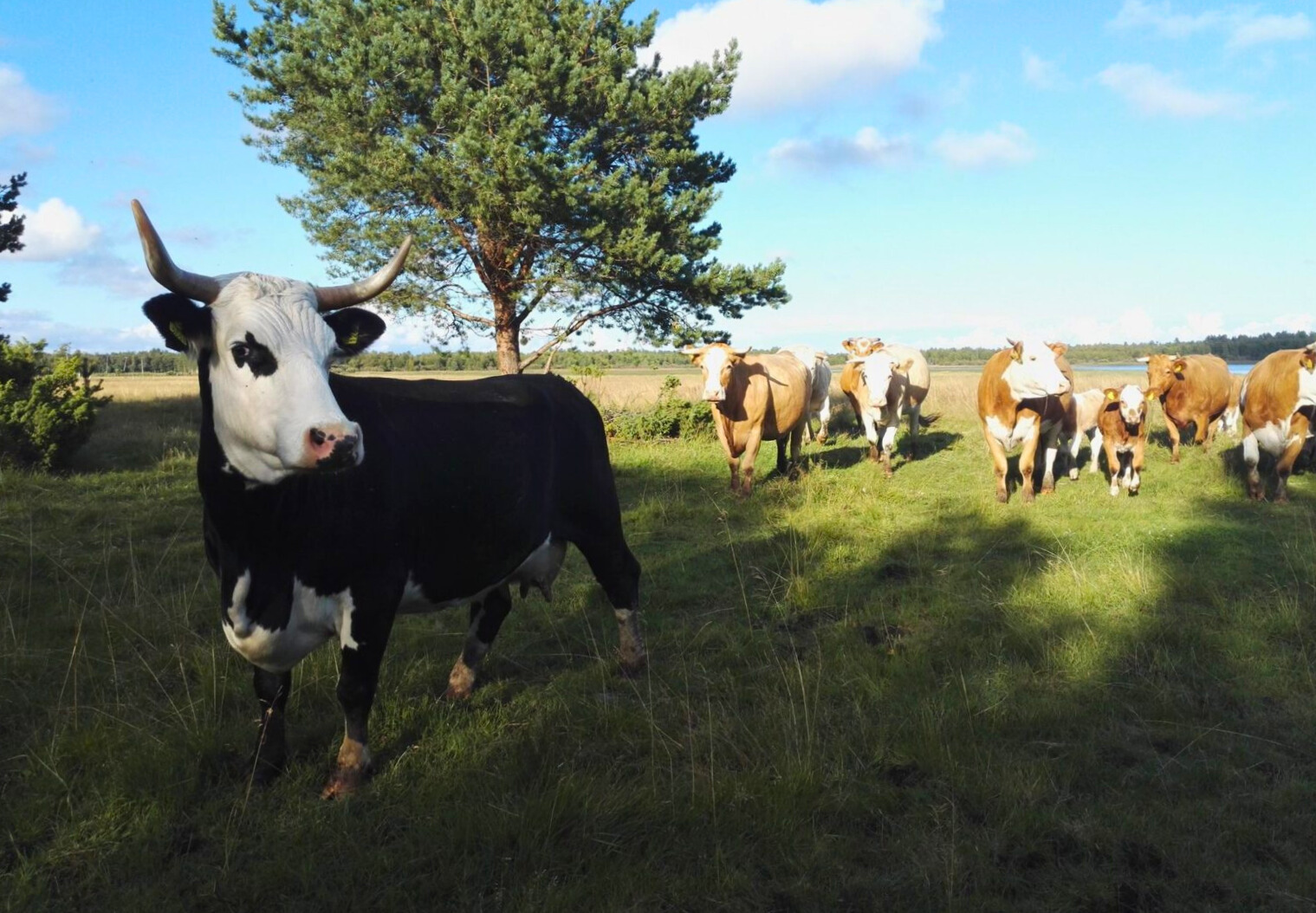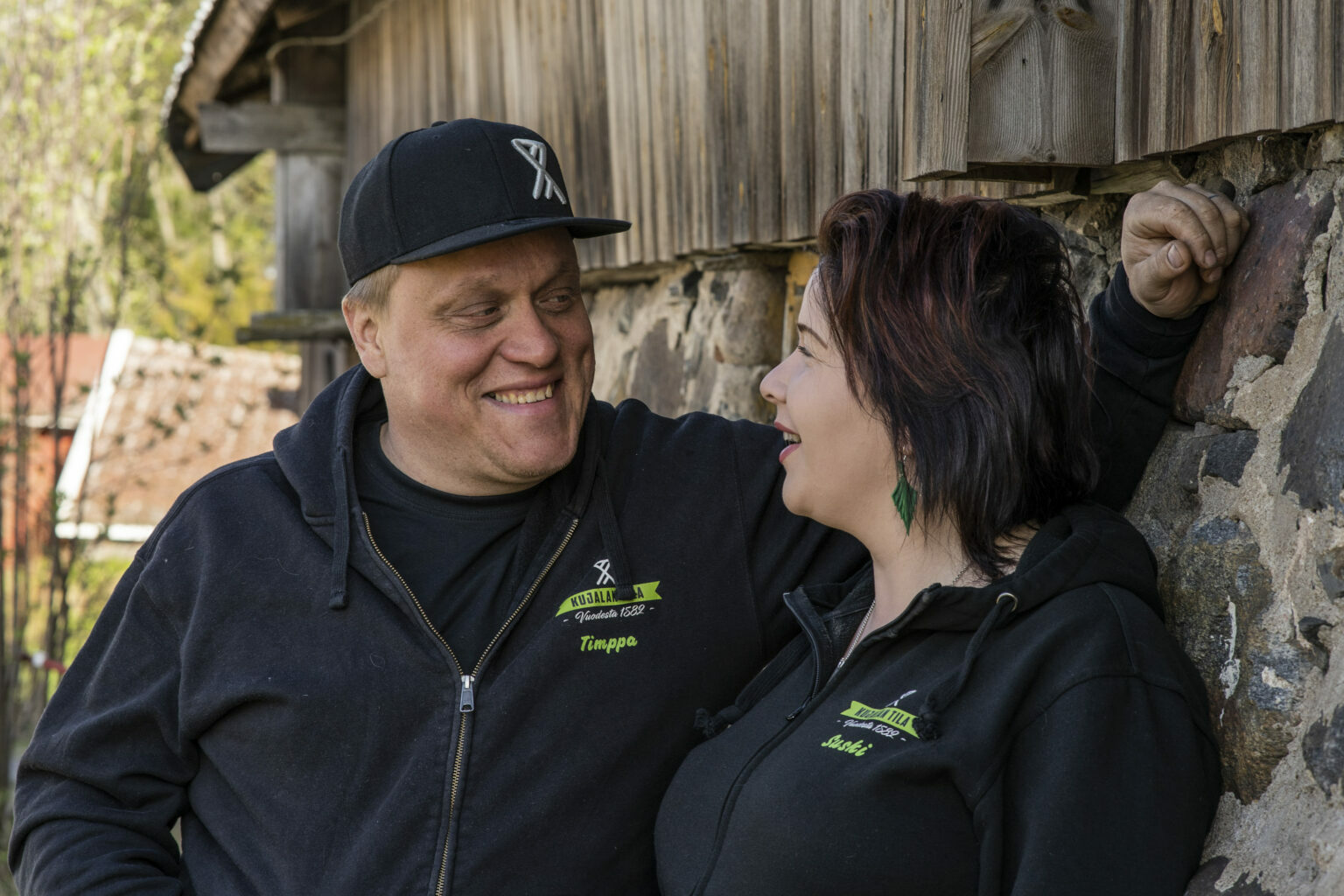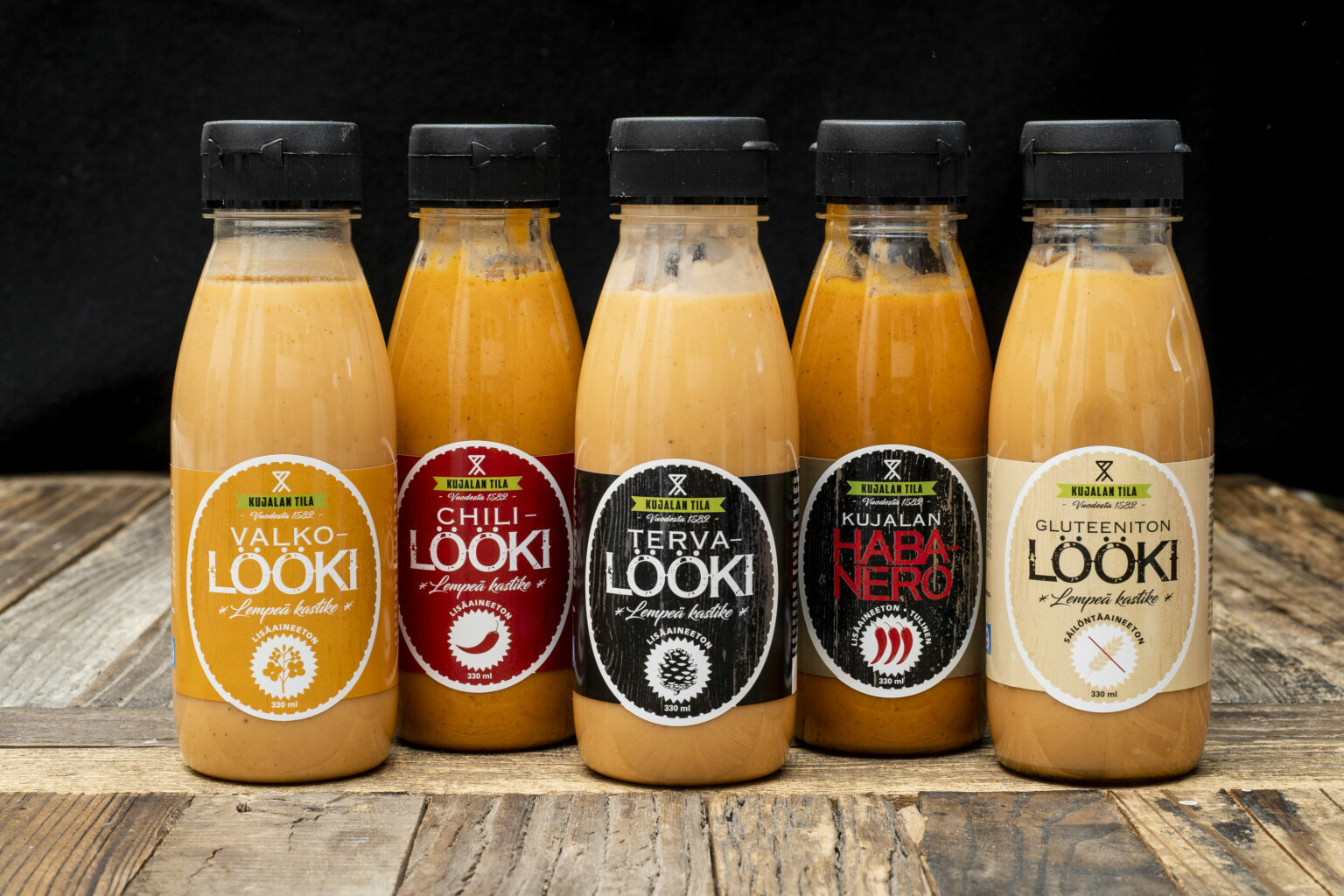Cattle graze on natural seashore pastures at Kujala Farm
Timo and Susanna Kujala's traditional farm in Hailuoto produces authentic local food from high-quality ingredients. In the summer, Kujala’s cattle graze on Hailuoto's coastal meadows, providing valuable landscape management. The farm is a good example of how beef production can take into account the climate, the environment and biodiversity.

A diverse range of high-quality local food products
Kujala Farm was established in Hailuoto in 1582 and today the farm’s products include beef, meat products, sauces, flavoured syrups, and cereal products. Timo Kujala was born on the farm and has been its owner since 2006. Susanna moved to the farm in 2020.
Animal welfare is a key issue at Kujala. The farm's Simmental, Hereford and Limousin breeds are healthy in both nature and structure and are well suited to grazing on natural pastures. Outside the grazing season, the cows live in open sheds which allow them to move around and interact with each other.
The natural pastures on which Kujala's cattle graze are traditional rural biotopes, habitats that are shaped by traditional livestock management and characterised by a high diversity of plant and animal species. Natural meadows are not fertilised, dug up or sown. Traditional rural biotopes have declined by up to 90% since the 1960s, making them critically endangered habitats.

Grazing coastal grasslands contributes to biodiversity, improves livestock welfare, has recreational value, and provides experiences for local people. The continuous vegetation cover of the fields and the absence of tillage reduce the leaching of nutrients into water bodies. Grasslands also act as carbon sinks, sequestering carbon dioxide and carbon into the soil.
In addition to pastures, the Kujala farm has fields where they grow cereal crop for food production and feed for their own livestock. In crop rotation, the farm uses turnip rape, which improves the structure of the soil. The oil from the turnip rape is used for food production on the farm, and the cereal and turnip rape waste can be used as animal bedding. The cattle at Kujala farm also eat the waste mash from the local Hailuoto brewery.
Kujala's climate-smart solutions also include the use of solar power, which provides around 20% of the farm's annual energy needs. Most of the machinery and equipment used on the farm is bought second-hand and is kept in good working order through regular maintenance. The farm’s products are packaged in recycled cardboard boxes and padded with newsprint.

Kujala Farm has added tourism to its product range during the otherwise quiet winter season. In cooperation with local hotels, the farm has planned a snowshoeing trip for tourists, where Susanna is able to use her training as a nature guide. The farm also offers apprenticeships and welcomes groups to visit the farm.
From company and product development towards artisan food
Timo and Susanna Kujala have actively developed the farm’s activities through various projects. The projects have provided them with tools for human resource management and for the digitalisation of agriculture, among other things. They are also involved in the Arctic Food Lab network which is a part of the Oulu 2026 European Capital of Culture activities. The Arctic Food Lab programme promotes clean and sustainable food produced in Northern Finland.
Timo and Susanna have recently branded their products more towards artisan food. According to the definition of the Finnish Artisan Food Association, artisan food products must not contain preservatives or additives, the ingredients must be domestic, preferably local, and their origin must be known. The products must be made in accordance with traditional and artisanal principles.

At the end of 2023, Kujala's burger patties were awarded the Artisan Food Certificate, and this year they have even more certified products. In turn, Kujala’s garlic sauce was awarded a gold medal in the Finnish Food Craftsmanship Championship competition in 2023. The new recipes under development will also follow the definition of artisanal food, say the Kujala entrepreneurs about their future plans.
The publication is one of the ClimateFood project's climate-smart success stories in the food chain. Case examples includes stories both from Finland and from Sweden.








